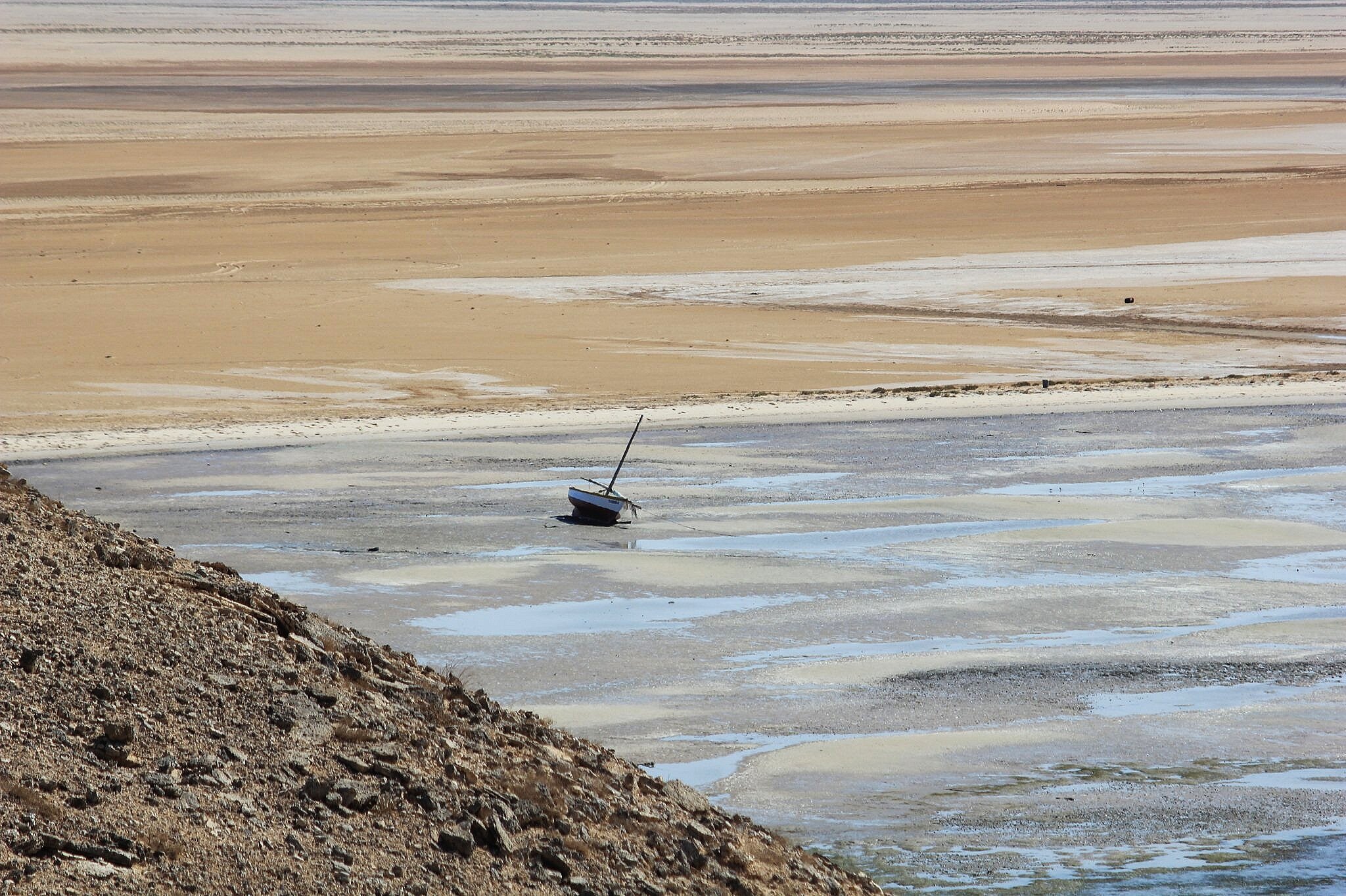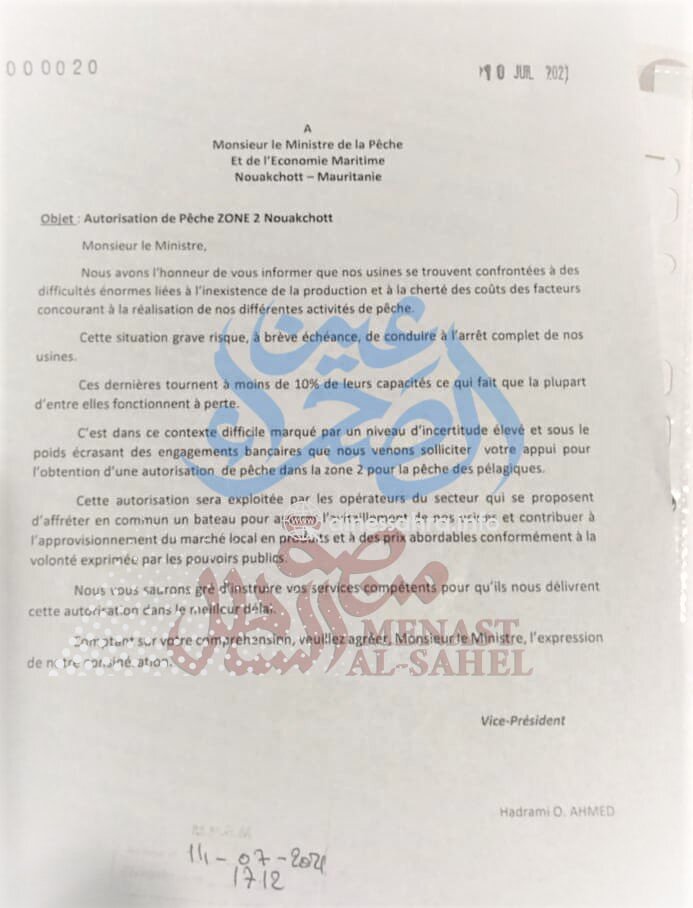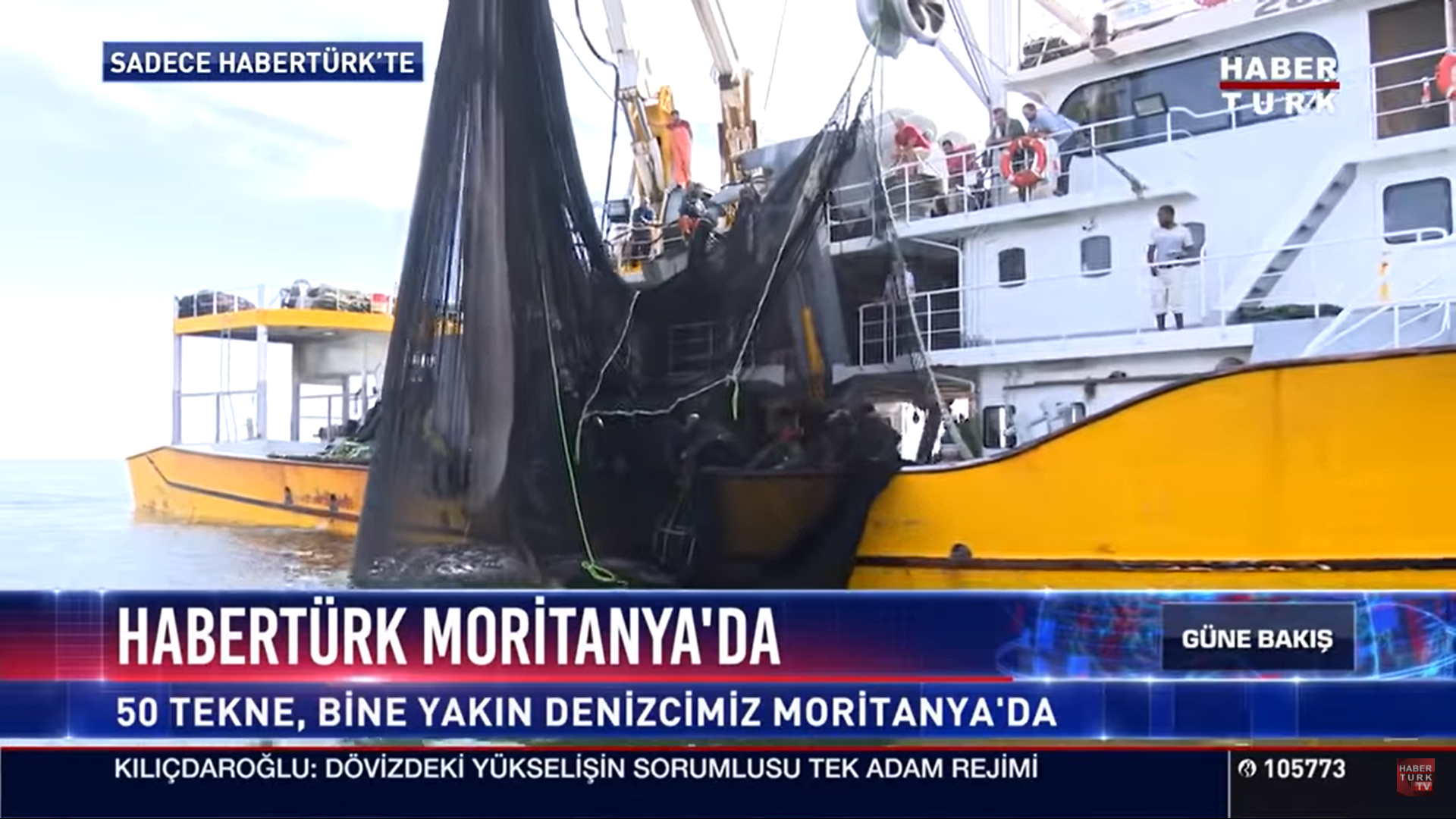Update: On 5 November 2021, the Government of the Islamic Republic of Mauritania terminated the special derogation after 3 months following "the observation on the inconclusive results of the experimentation."
Mauritania's fisheries sector is in turmoil. At the centre of the debate is the fishing authorisation granted to a 40-metre Turkish seiner to fish for small pelagics in a zone with depths of less than 10 metres, normally reserved for artisanal fishing.
The seiner will fish on the borders of the Banc d'Arguin National Park (PNBA), and its presence is seen by many as a threat to this nature reserve covering one third of Mauritania's coastline, which is rich in biological diversity. This authorisation comes at a time when the ink is barely dry on the EU-Mauritania Sustainable Fisheries Partnership Agreement (SFPA), signed on 28 July.
A brief reminder of the facts. On 19 August 2021, the Mauritanian Minister of Fisheries and Maritime Economy informed the coastguard (see image 1 below) of a special derogation for the Turkish vessel HABIBIN YAVUZ, chartered by the factory owners of the National Fisheries Federation (FNP). This boat will now be able to fish for small pelagics in a zone directly adjacent to the Banc d'Arguin, the "A zone". Two weeks earlier, the Minister explained that this is a pilot phase of experimental fishing "with the aim of improving and reinforcing the access of populations to fish products at reasonable prices." (see image 2)
This argument is similar to the one put forward by the FNP factory owners who, on 10 July (see image 3), explained to the Minister: “our factories are facing enormous difficulties due to the lack of production [...] they are operating at less than 10% of their capacity, which means that most of them are operating at a loss.”
The influence of the fishmeal lobby
Maimouna Saleck, President of the Mauritanian NGO BiodiverCités, is the one who raised the alarm about the granting of this authorisation. For her, it is an aberration: “Zone A is a zone reserved for artisanal fishing and in particular for pirogues with gangways. However, these artisanal boats have been pushed out of zone A since 15 July 2021, despite the protests of the artisanal sector. She is indignant that at the same time, "the Minister grants this special authorisation for coastal fishing for pelagic fish - renewable, with a quota of 5,000 tonnes - to this Turkish boat. The vessel HABIBIN YAZUZ is not a small vessel - it is a 40-metre seiner!”
This vessel is no stranger to Mauritanian waters. According to AIS data analysed by Global Fishing Watch, the HABIBIN YAZUZ carried out several dozen fishing operations between March 2020 and August 2021 in Mauritanian waters, particularly around the BANP. But it usually supplies the fish to the factories for processing into fishmeal. Despite the conditions set by the Minister for this authorisation - 'to supply the local and domestic markets exclusively with fish for human consumption' - are we sure that the majority of this catches will not be used for fishmeal?
In a recent article, the factory owners' representative explains that thanks to the derogation granted by the Ministry, the HABIBIN YAZUZ, which can fish between 150 and 200 tons per day, will land about 160 tons per day: 50 tons will immediately supply the local market, and 10 tons will be stored per day as "security". Mrs Saleck asks: "Of the 160 tonnes fished per day, 100 tonnes will remain, what do we do with them?” Given that the factories primarily produce fishmeal, it is highly likely that these remaining quantities will supply this sector.
Some artisanal fishermen, such as Mohamed Mahmoud Memah, question the ability of the Turkish seiner to supply Mauritanian consumers with fresh fish, something that artisanal fishermen do: "The fishing technique of this boat, which has no cooling system, does not allow it to bring products for human consumption, while national boats of the pelagic fleet are equipped with a sophisticated RSW system. Why has this privilege not been given to national vessels?”
For scientist Ad Corten, an expert on small pelagics in West Africa, it is the justification for the authorisation itself that does not make sense: "The argument that purse seiners should be allowed to fish in an area that has been closed to purse seiners until now, in order to provide fish for Mauritanians, is not valid.” He explained that the lack of sardinella on the market is due to the massive use of this fish for fishmeal. "The only remedy is to completely ban the use of both species of sardinella to make fishmeal.”
In any case, the first report of catch declarations mentions only 60 tonnes caught, of which 52 tonnes of flat sardinella and 2 tonnes of round sardinella. Some people are wondering about this low quantity of declared catches. Sandra Kloff, a biologist who has been studying the marine ecology of Mauritania for more than 25 years, has an explanation: "According to Global Fishing Watch's analysis of the AIS data, during its "experimental fishing" trip, the HABIBIN YAZUZ stayed on 29 August for 2.5 hours next to the NESLISAH 1, a Turkish "reefer" vessel that has the capacity to refrigerate fish products and collects catches from Turkish vessels in the area. On 3 September, the HABIBIN YAZUZ even stayed next to this reefer for 7.5 hours". She also recalls that "the practice of transhipping fish to reefs is strongly condemned at the global level, as it greatly increases the risk of illegal fishing."
Solutions for consumers exist, without breaking the law
Since Maïmouna Saleck's alert, the debate on the merits of this authorisation has been raging. Many believe that this fishery should be reserved for the national artisanal fleet, which is more concerned with the preservation of national fishery resources, and whose benefits in terms of food security, employment and the economy benefit the entire country.
For Eida Bamba, President of the Coastal Fishing Committee, artisanal and coastal section of the FNP, this is a "violation of the access rights of artisanal fishermen. This authorisation has no place in this zone, but in the zone authorised for purse seiners of more than 40m, which is right out to sea.”
In his contribution to the debate, Dr. Cheikh Abdellahi Inejih, a fisheries scientist, explains: "There is no shortage of solutions to this problem of national fish consumption, without derogating from the regulations in place.” He suggests that, as a solution to the lack of fish on the national market, the Société Mauritanienne de Commercialisation du Poisson (SMCP) should be asked to sell part of the fish intended for export locally, given the prices of the last decade: "We can be sure that Mauritanians will rush to buy Thiof sold at MRO 1,800, courbine at MRO 1,040 and Mix Afrique at MRO 320 per kilogram.”
Since journalist Maïmouna Saleck raised the alarm, the debate has raged, as many believe that this fishery should be reserved for the national artisanal fleet. Photo: Plage des Pêcheurs, Mauritania, by Michał Huniewicz.
Dr. Inejih also points out that the export volumes of GSPC to Africa, "a market comparable to ours", were more than 105 thousand tons in 2020, which would largely cover the national demand at affordable prices. "And the issue of distribution to the domestic market can easily be handled by the National Fish Distribution Company (SNDP), to the great benefit of creating jobs and strengthening the country's food security.”
Finally, he emphasised that, within the framework of the recently renewed Fisheries Partnership Agreement (FPA) with the European Union, pelagic freezer trawlers contribute 2% of their catches at the end of a trip to the policy of fish distribution to needy populations. "This is a measure applicable to all foreign small pelagic fishing fleets. The quantities would be significant if this measure were extended to all vessels under foreign flags, some of which operate under the "national regime" in the framework of charters.”
Threat to the Banc d'Arguin
Another consequence of this fishing authorisation that revolts Maïmouna Saleck is the fact that the HABIBIN YAZUZ will be fishing in a sensitive area, the limit of which is directly adjacent to the border of the most important marine protected area in Africa: "it is the open door to incursions into the Banc d'Arguin”. For her, a single incursion by such a vessel would irreversibly damage ecosystems rich in biodiversity, mudflats and sea grass beds. "The risks of such an incursion, whether accidental or provoked, are multiplied by the granting of this authorisation and by the absence of a buffer zone that would give the authorities in charge of the Park's surveillance a certain margin of manoeuvre and warning to stop the vessel in time!”
Inconsistency with the Fisheries Partnership Agreement signed with the EU
The commitments of Mauritania and the EU to sustainable fisheries, through the new SFPA protocol, are now, with this fishing authorisation, put to the test: what protection for the Banc d'Arguin, supported in the SFPA through sectoral support, if it is constantly threatened by destructive incursions? What respect for the Mauritanian artisanal fishing zone, a commitment made by European vessels but apparently not by Turkish vessels? And what support is there from Europe for an effective policy to supply the population with small pelagics (particularly through the SFPA), while processing into fishmeal still accounts for the lion's share of catches?
For Maïmouna Saleck, in any case, the way forward is clear: "The Minister of Fisheries and Maritime Economy, whose concern is entirely legitimate, should find other solutions to supply the Mauritanian market with fresh fish - absolutely necessary for food security; solutions in consultation with all the actors in the fisheries and marine sectors; but also solutions that do not take the country's future hostage.”
Banner photo : Photo of the Banc d'Arguin, by Carlos Reis.











A Senegalese civil society organisation, member of the OECD Watch network, supported fishers from Saint Louis in placing a complaint to the UK and US OECD National Contact Points against the multinational enterprises British Petroleum and Kosmos Energy.